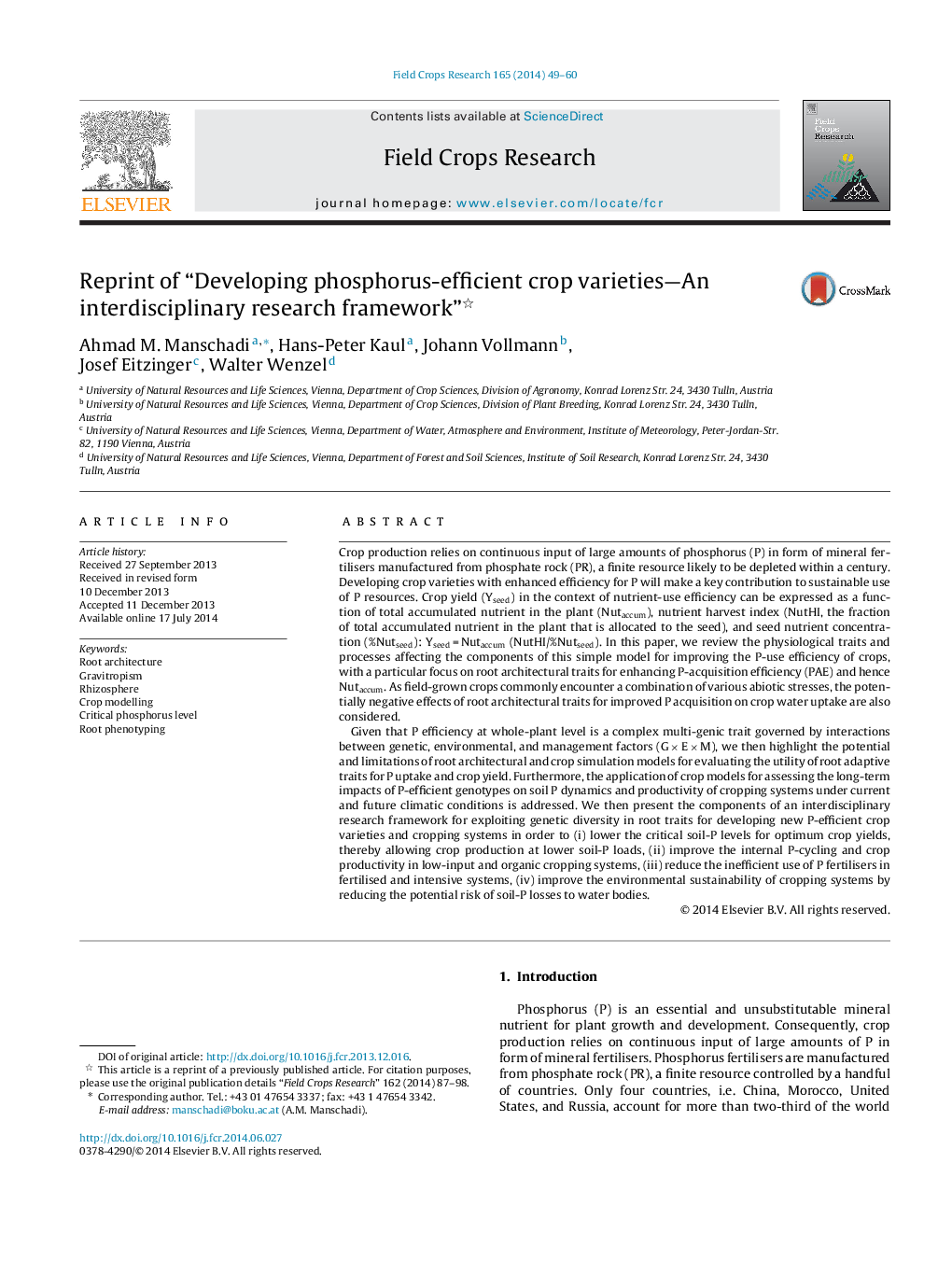| Article ID | Journal | Published Year | Pages | File Type |
|---|---|---|---|---|
| 6375012 | Field Crops Research | 2014 | 12 Pages |
Abstract
Given that P efficiency at whole-plant level is a complex multi-genic trait governed by interactions between genetic, environmental, and management factors (GÂ ÃÂ EÂ ÃÂ M), we then highlight the potential and limitations of root architectural and crop simulation models for evaluating the utility of root adaptive traits for P uptake and crop yield. Furthermore, the application of crop models for assessing the long-term impacts of P-efficient genotypes on soil P dynamics and productivity of cropping systems under current and future climatic conditions is addressed. We then present the components of an interdisciplinary research framework for exploiting genetic diversity in root traits for developing new P-efficient crop varieties and cropping systems in order to (i) lower the critical soil-P levels for optimum crop yields, thereby allowing crop production at lower soil-P loads, (ii) improve the internal P-cycling and crop productivity in low-input and organic cropping systems, (iii) reduce the inefficient use of P fertilisers in fertilised and intensive systems, (iv) improve the environmental sustainability of cropping systems by reducing the potential risk of soil-P losses to water bodies.
Related Topics
Life Sciences
Agricultural and Biological Sciences
Agronomy and Crop Science
Authors
Ahmad M. Manschadi, Hans-Peter Kaul, Johann Vollmann, Josef Eitzinger, Walter Wenzel,
